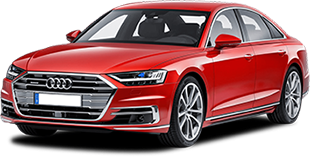Lotus - Esprit - Workshop Manual - (2010)
Get your hands on the complete Lotus factory workshop software
Download nowGet your hands on the Complete Lotus Factory Workshop Software
Download nowGet notified when we add a new LotusEsprit Manual
We cover 60 Lotus vehicles, were you looking for one of these?

Lotus Elise Workshop Manual (A111T0327J) PDF

Lotus Lotus Evora Lotus Evora 2009 Workshop Manual

Lotus - Elan - Parts Catalogue - (1963)

Lotus - Elise - Workshop Manual - 2004 - 2004 (4)

Lotus - Evora - Owners Manual - (2012)

Lotus Lotus Exige Lotus Exige 2004 Workshop Manual

Lotus - 2-Eleven - Workshop Manual - (2018)

Lotus - Eclat S1 - Workshop Manual - (1992)

Lotus - Elan - Workshop Manual - (1966)

Lotus Lotus Evora Lotus Evora 2010 Owners Manual

Lotus - 2-Eleven - Workshop Manual - (2006)

Lotus - Seven - Owners Manual - (1957)

2001 Lotus Elise Service and Repair Manual

Lotus - Exige - Workshop Manual - 2013 - 2013 (2)

Lotus - Elise - Workshop Manual - (2009)

Lotus Lotus Elise Lotus Elise 2004 Workshop Manual

Lotus - 2-Eleven - Workshop Manual - 2012 - 2017

Lotus - Evora - Workshop Manual - (2011)

Lotus - Evora - Workshop Manual - 2017 - 2018

Lotas - Elise - Owners Manual - 2005 - 2005

Lotus Lotus Elise Lotus Elise 2005 Owners Manual

Lotus - Elise - Workshop Manual - (1996)2

Lotus - 340 R - Workshop Manual - 1996 - 2001

Lotus - Eclat S1 - Workshop Manual - 1990 - 1995

Lotus Lotus Elite Lotus Elite 1974 Misc Documents Press Release

Lotus - Elise - Workshop Manual - 2012 - 2012

Lotus - 2-Eleven - Workshop Manual - 2004 - 2011

Power Tools & Accessories - Homelite - 18IN. 42CC CHAINSAW

Lotus - Exige S2 - Workshop Manual - (2006)

Lotus - Elise - Workshop Manual - 2018 - 2018

Lotus - Exige S - Workshop Manual - 2014 - 2014

Lotus Lotus Europa Lotus Europa Workshop Manual

Lotus - Elise - Parts Catalogue - 2000 - 2019

Lotus - Evora - Workshop Manual - (2010)

Lotus - 2-Eleven - Workshop Manual - 2015 - 2018

Lotus - 340R - Workshop Manual - 1996 - 2012

Blenders & Juicers - Kenwood - EXCEL juicer JE850

Yard Equipment - Homelite - 4.8 VOLT CORDLESS GRASS SHEAR

Lotus - Elise - Workshop Manual - 2008 - 2008

Lotus Lotus Exige Lotus Exige Misc Documents Brochure

Lotus Lotus Exige Lotus Exige 2014 Misc Documents Brochure

Lotus - 2-Eleven - Workshop Manual - 1996 - 2004

Lotus Lotus Evora Lotus Evora 2014 Misc Documents Brochure

Lotus Lotus Exige Lotus Exige 2012 Misc Documents Brochure

Power Tools & Accessories - Homelite - LOG SPLITTER Model UT49103

Leaf Blowers - Homelite - 7 AMP ELECTRIC BLOWER Model UT42100

Lotus Lotus Exige Lotus Exige 2004 Misc Documents Parts Catalogue

Leaf Blowers - Homelite - 2-CYCLE BLOWER Model UT09525

Power Tools & Accessories - Homelite - 14IN. 42CC CHAINSAW

Lotus Lotus Elise Lotus Elise 2013 Misc Documents Brochure

Lotus Lotus Exige Lotus Exige 2008 Misc Documents Brochure

Lotus Lotus Elise Lotus Elise 2014 Misc Documents Brochure

Lotus Lotus Evora Lotus Evora 2013 Misc Documents Brochure

Yard Equipment - Homelite - 22%22 ELECTRIC HEDGE TRIMMER

Bajaj - Motorcycle - Bajaj__SUPER_EXCEL_w_electronic_ignition_wiring_diagram

Power Tools & Accessories - Homelite - 14%22 ELECTRIC CHAINSAW

Yard Equipment - Homelite - 17%22 ELECTRIC HEDGE TRIMMER

Lotus Lotus Exige Lotus Exige 2013 Misc Documents Brochure

Lotus Lotus Exige Lotus Exige 2004 Misc Documents Brochure

Lotus - Elan - Workshop Manual - (1971)

Lotus Elise Workshop Manual (A111T0327J) PDF

Lotus Lotus Evora Lotus Evora 2009 Workshop Manual

Lotus - Elan - Parts Catalogue - (1963)

Lotus - Elise - Workshop Manual - 2004 - 2004 (4)

Lotus - Evora - Owners Manual - (2012)

Lotus Lotus Exige Lotus Exige 2004 Workshop Manual

Lotus - 2-Eleven - Workshop Manual - (2018)

Lotus - Eclat S1 - Workshop Manual - (1992)

Lotus - Elan - Workshop Manual - (1966)








































































































































































































































